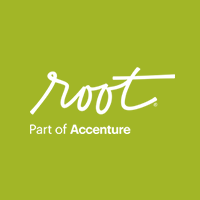I recently came across several articles discussing how Generation X is being perceived as “unhireable” amid this Great Resignation.
According to a CNBC article, “Rapid digital adoption during the pandemic has accelerated the automation of jobs and worsened underlying ageism, making it harder for mid-career workers to secure roles, according to the report from Generation, a nonprofit employment organization.” There are also all sorts of positive and negative perspectives on this report on LinkedIn.
Being a great employee is a result of great work, not birth year, hair color, or height
As someone born right in the middle of the Gen X years, I have a hard time believing this is even being talked about. Obviously, I’m biased. I own that. But this report is shocking to me for more than just personal reasons. It also goes against everything I support every day for work.
Root spends 100% of its time helping leaders develop high-performing organizations by focusing on its people – at all levels. We look at the characteristic qualities of high performers, their behaviors, and the skills those people need to be successful. We have seen that characteristics like age, race, and gender don’t matter.
How do we know? We work with organizations of all sizes from all industries and locations. Our insights experts have conducted countless studies of human behaviors at work and interviewed thousands of people to understand the nuances of company cultures, what motivates employees, and what qualities make for great leaders and team members. While I certainly can’t recite every finding, there’s never been a discussion where age was a barrier to being a high performer at any level of the organization.
A person’s age doesn’t dictate the work they’re capable of doing. Hiring managers should focus less on age and more on the characteristics that make great employees and leaders.
Gen X are resilient, skilled adopters
I find it laughable that people say Gen X’ers can’t adapt to technology. I took a programming class as early as fifth or sixth grade. I think that’s about when we got our first computer, too – a Commodore 64 with a tape cassette that played video games. Fancy! That was just the beginning. We went from changing the TV channels via a dial to a remote control to now using our phones. We went from watching movies on Beta to VHS to DVR. Now all of that is antiquated and we are cable-free, streaming from multiple apps (and loving it, might I add).
My college classmates were among the first to have email. I remember the first job I had (not my first job out of college) where everyone began using email on a regular basis. Remember those AOL floppy disks? Because I had friends who went to school with one of the Google founders, I started googling things way before anyone else knew about it. (Much better than Ask Jeeves!)
My generation was fueled by the dot-com era of start-ups (which, in many cases, quickly became closed-ups). We began the trend that millennials have adopted of not staying at companies for 25 years but instead changing jobs after two or three years because they offered new opportunities, new locations, or new skills. We are the generation that has perfected the adoption of new technologies. We build them and we rely on them in every facet of our lives – work and play. To say we aren’t willing to adopt new technologies is to overlook the fact that it’s something we have done – and done proficiently – at every stage of our lives.
As the smallest generation, we don’t have much clout, but we’ve experienced an unprecedented number of life-impacting events that required our resiliency:
- The Challenger disaster in 1986
- The stock market crash of 1987
- The economic recession of the late 1980s
- The dot-com bubble burst in the late 1990s
- The subprime mortgage fallout of 2008
- 9/11
- The Columbine school massacre
The list unfortunately goes on. These events and many others have shaped the characteristics that define Gen X, including independence, critical thinking, flexibility, and self-reliance. Of course, Millennials and Gen Z have as navigated these many other life-changing events.
The point is, as I think about the events and experiences that have necessitated resiliency, I again wonder why leaders would try to characterize specific hiring (or firing) traits based on generational trends instead of focusing on the characteristics of the types of workers you need to make the entire organization successful.
Because while Gen X character traits seem pretty darn admirable, it’s not about a generation’s qualities but the qualities of the person in question.
For example, there are people in every generation who have said, “I don’t like change,” or “Why do I have to learn a new skill? I like what I’m doing now,” or “My boss is a micromanager.” Right?
Every generation includes people who can improve as managers. Every generation includes people who don’t like their job for one reason or another or who haven’t had the opportunity to attend college or a training program that could move their career in a positive direction. It’s universal – not age-specific.
Leaving behind generation stereotypes
Let’s get to the crux of what talent acquisition specialists and people development leaders should be focusing on: the primary characteristics that help employees deliver high-performing work. Common traits that can be indicators of a high-performing employee include:
- Leadership skills: boss ≠ The fact is, the “yell and tell” method of leading doesn’t work. In fact, it hurts productivity and retention. High-performing leaders are vulnerable, trust-building truth-tellers who engage people in conversations.
- Interpersonal skills. Relationships are critical, but that doesn’t mean an employee has to be buddy-buddy with everyone. But they do need to be able to engage with people in effective ways, understand the importance of collaboration (and the ways that different teams collaborate), and know how to be a team player.
- Emotional intelligence. Not everyone’s brain works the same way – we process information differently, and some of us are able to more easily “connect the dots” than others. Having that emotional intelligence and the empathy for what other people may be going through at work and at home can be a game-changer for performance and engagement.
- Communication skills. High performers are generally great communicators in one way or another.
- Ability to do the job. Basic? Yes. Obvious? Maybe. Necessary?
I’m pretty sure these characteristics are all age-agnostic. If hiring managers refrain from looking at college graduation dates and instead judge employees by their skills, experience, and potential, then maybe articles such as the CNBC one wouldn’t even be published.
If you think your organization has succeeded in avoiding this issue, you might want to double check, as the CNBC article isn’t the only proof of the fact that ageism in the workplace is alive and well.
- The Stanford Graduate School of Business published a report, Equality for (Almost) All: Egalitarian Advocacy Predicts Lower Endorsement of Sexism and Racism, But Not Ageism, on this very topic in January 2021.
- Also check out the July 2021 Forbes piece, “Why Ageism In The Workplace Still Seems To Be Okay,” which found that “the younger people were, the more likely they were to hold ageist views on older workers.”
Gen X shouldn’t be perceived as being tech-resistant or unhireable just because they’ve been alive longer – or because younger people are looking to advance. But it’s happening.
As the workplace recalibrates and adjusts to hybrid workers and new in-office policies, every leader and organization should concern themselves less with how old an employee is and more with how that employee’s unique characteristics and skills can contribute to the company’s growth.









